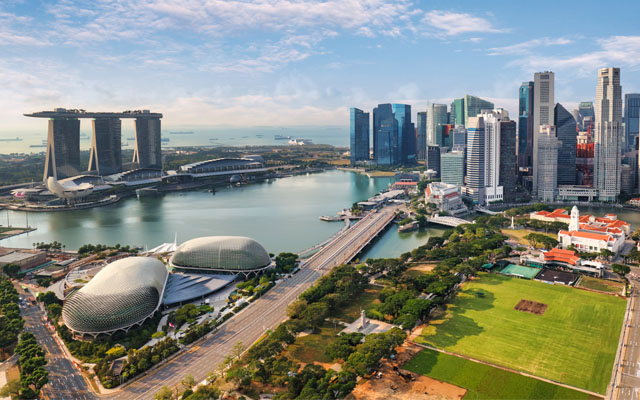
Hotel occupancy rates in Asia-Pacific continue to rise steadily as all major markets reopen, increased air capacity and a significant increase in conferences and events in the region.
Strong tourism demand and macroeconomic headwinds, according to JLL’s 2023 Hotel Operator Sentiment Survey, conducted among more than 360 hotel operators in Asia Pacific to capture sentiment among hotel owners and operators. However, industry discontinuities and uncertainties still exist.
 Average daily fare in Singapore is more than 20% above pre-pandemic levels
Average daily fare in Singapore is more than 20% above pre-pandemic levels
Markets such as Bali, Phuket and Singapore have seen average daily rates (ADRs) more than 20% above pre-pandemic levels, driven primarily by leisure travelers. According to the survey, 77% of hotels in the Asia-Pacific region expect occupancy rates to increase further in 2024, especially for top luxury and luxury hotels. Furthermore, 73% of hotels in Asia Pacific expect an increase in his ADR. Among the subregions, Southeast Asia has the most optimistic outlook, due to strong momentum in the growth of tourist arrivals in most countries.
Most respondents (66%) are optimistic that total revenues will exceed pre-pandemic levels in 2024, but sentiment in the economic sector remains low (33%). Business hotels are less optimistic due to their dependence on tourist groups and increased travel costs. However, the recent expansion of group travel destinations from China, including Australia, South Korea and Japan from August 2023, is expected to provide a positive outlook for economy hotels in the next six to 12 months.
“Leisure travel continued to drive demand in Asia Pacific in the first half of 2023. At the same time, corporate spending has also been under pressure, but both leisure and business We are seeing a steady increase in bookings from JLL Hotels & Asia Pacific,” said Nikhat Erkan, CEO, JLL Hotels & Asia Pacific. hospitality group.
Labor shortages in the region are increasing associated costs from 2022 onwards, with labor costs expected to increase by 10% to 20% by 2024 compared to 2019. In many cases, this has been alleviated to some extent by redefining job roles. Reducing service standards and reducing maximum capacity.
The introduction of technological advances such as mobile check-in, cleaning robots, and guest request tools may help alleviate some of this labor constraint, but in a hospitality industry known for higher levels of service touch points. , relatively slow in adopting technology. .
Energy prices in the region have also increased due to ongoing political instability and post-lockdown challenges. Looking ahead to 2024, 32% of respondents expect energy costs to increase by more than 10% in 2023 compared to 2022. That’s a significant decrease compared to his 51% increase. Concerns for hotels in 2024 have decreased compared to this year, as hotels that have adopted sustainability initiatives have implemented energy-saving measures that have had a positive impact on their cost base.
Stakeholders in the hotel industry are increasingly aware of the need to embrace sustainability and broader environmental, social and governance (ESG) principles. Approximately 65% of respondents currently have a plan in place to reduce their carbon footprint. Notably, a higher proportion of hotels in the luxury segment have adopted this initiative.
Investors and guests prefer ESG-supported hotels, so including green terms and incentives in hotel management contracts can align owner and operator interests around sustainability measures. However, hotels in the region continue to face challenges in their sustainability efforts, including a lack of funding and in-house expertise and technology.
The main challenge facing hotel operators in 2022 was the difficulty in measuring sustainability goals. To foster positive change in the region, the Uniform Accounting System for the Lodging Industry (USALI) will be updated by early 2025 to incorporate sustainability indicators and various reporting guidelines.
Obtaining a sustainability rating allows hotels to demonstrate their commitment to environmental standards, energy efficiency, waste management, water conservation, and other sustainable practices. The majority of hotels in Asia Pacific will be rated by 2024, up from 38% who are already rated.
“While the hotel sector has seen an impressive recovery post-pandemic, there are headwinds to overcome in the medium term and continued profit growth will require more aggressive management. Changing guest preferences. and increased competition, there is an opportunity for owners to critically examine their concepts and positioning, rethink market segmentation, evolve their approaches to attracting and retaining talent, and commit to a clear sustainability path. ” says Director Zander Nijnens. Head of Advisory and Asset Management, Asia Pacific, JLL.

